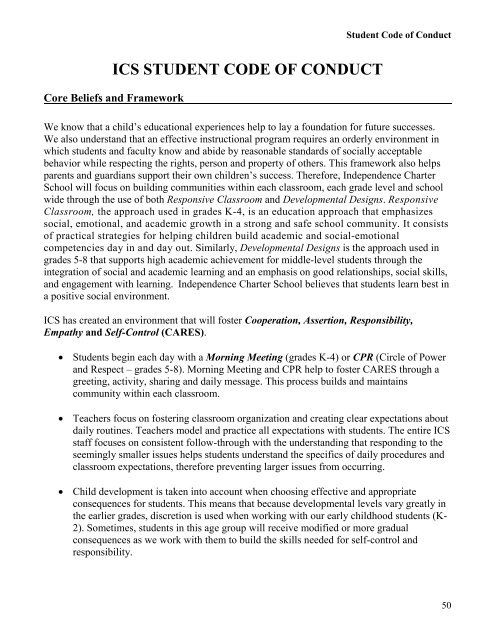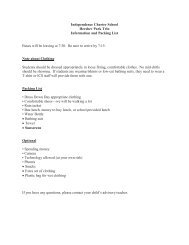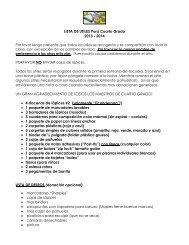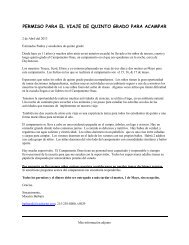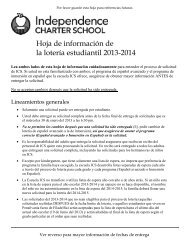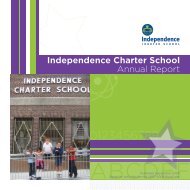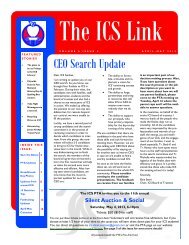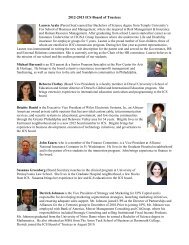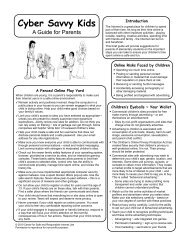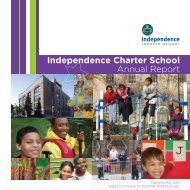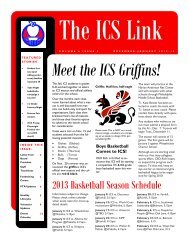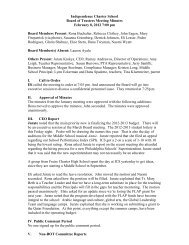Parent & Student Handbook - Independence Charter School
Parent & Student Handbook - Independence Charter School
Parent & Student Handbook - Independence Charter School
Create successful ePaper yourself
Turn your PDF publications into a flip-book with our unique Google optimized e-Paper software.
<strong>Student</strong> Code of Conduct<br />
ICS STUDENT CODE OF CONDUCT<br />
Core Beliefs and Framework<br />
We know that a child’s educational experiences help to lay a foundation for future successes.<br />
We also understand that an effective instructional program requires an orderly environment in<br />
which students and faculty know and abide by reasonable standards of socially acceptable<br />
behavior while respecting the rights, person and property of others. This framework also helps<br />
parents and guardians support their own children’s success. Therefore, <strong>Independence</strong> <strong>Charter</strong><br />
<strong>School</strong> will focus on building communities within each classroom, each grade level and school<br />
wide through the use of both Responsive Classroom and Developmental Designs. Responsive<br />
Classroom, the approach used in grades K-4, is an education approach that emphasizes<br />
social, emotional, and academic growth in a strong and safe school community. It consists<br />
of practical strategies for helping children build academic and social-emotional<br />
competencies day in and day out. Similarly, Developmental Designs is the approach used in<br />
grades 5-8 that supports high academic achievement for middle-level students through the<br />
integration of social and academic learning and an emphasis on good relationships, social skills,<br />
and engagement with learning. <strong>Independence</strong> <strong>Charter</strong> <strong>School</strong> believes that students learn best in<br />
a positive social environment.<br />
ICS has created an environment that will foster Cooperation, Assertion, Responsibility,<br />
Empathy and Self-Control (CARES).<br />
• <strong>Student</strong>s begin each day with a Morning Meeting (grades K-4) or CPR (Circle of Power<br />
and Respect – grades 5-8). Morning Meeting and CPR help to foster CARES through a<br />
greeting, activity, sharing and daily message. This process builds and maintains<br />
community within each classroom.<br />
• Teachers focus on fostering classroom organization and creating clear expectations about<br />
daily routines. Teachers model and practice all expectations with students. The entire ICS<br />
staff focuses on consistent follow-through with the understanding that responding to the<br />
seemingly smaller issues helps students understand the specifics of daily procedures and<br />
classroom expectations, therefore preventing larger issues from occurring.<br />
• Child development is taken into account when choosing effective and appropriate<br />
consequences for students. This means that because developmental levels vary greatly in<br />
the earlier grades, discretion is used when working with our early childhood students (K-<br />
2). Sometimes, students in this age group will receive modified or more gradual<br />
consequences as we work with them to build the skills needed for self-control and<br />
responsibility.<br />
50


